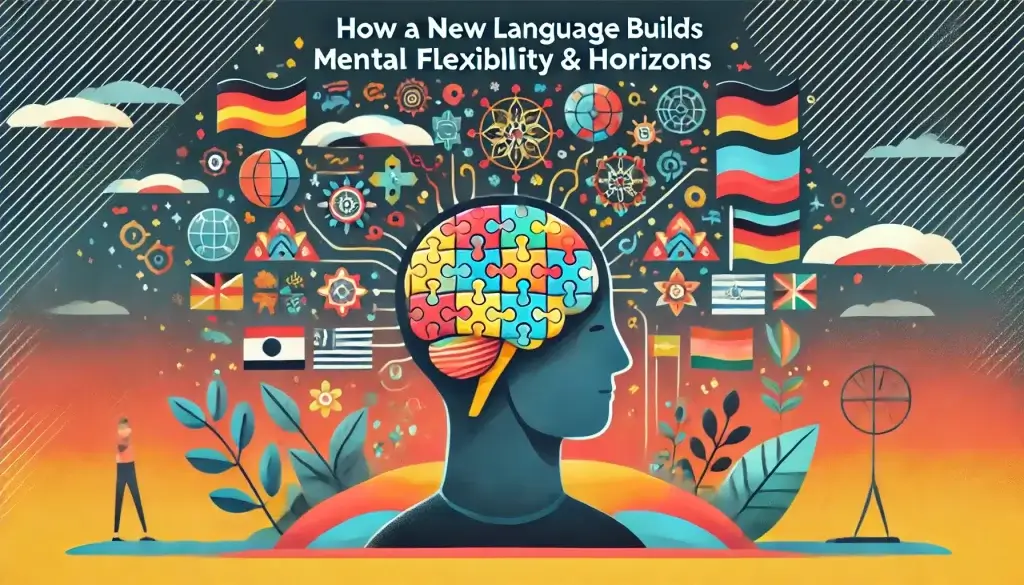Learning a new language is not just about storing words or copying phrases. It sets the mind free and stirs fresh thought. Many discover that they view life in a new light when they master another language. This work sparks imagination and helps build a flexible outlook.
How does that change really take place when one is trying to gain fluency in a new language? Some think the brain shifts as it meets strange words and grammar. Others see it as a way to bond with folks from distant areas on a deeper level. Spanish, Mandarin, or French can each bring new views and widen minds in surprising ways.

The Brain’s Boost
The mind gains a lot when people explore new tongues. Research shows that learners often use parts of the brain linked to memory and solving problems. They also sharpen listening skills and boost attention to small details.
When someone handles words and grammar from several tongues, the brain adjusts at a fast pace. This shift helps them move between tasks with ease and keep focus under stress. It may also hold back age-based mental decline, leaving the mind stronger as years pass. Should we be shocked that learning a language can slow mental aging? Experts note that bilingual folks show sharper thinking and remain clear-headed longer.
Adapting to Different Cultures
Learning a foreign tongue offers more than simple words alone. It shows how to understand local ways and common customs. For example, learning Japanese might teach someone the key role of group unity. Meanwhile, learning Arabic might reveal a culture that honors giving shelter and care.
These insights spark respect for many different ways of living. As people learn phrases, they often sense slight hints in meaning. That can boost social skills and cut confusion on trips or at jobs overseas.
Looking into local customs can open a person’s eyes in many ways. It makes people stop and reflect before they judge others. This habit helps them handle new social settings and tasks with ease.
Memory and Problem-Solving
Studying new languages goes hand in hand with stronger memory skills. Learning fresh words teaches the brain to store and sort bits of data. Over time, that practice helps with other tasks like school, work, or plans.
Handling tricky verbs and sayings also sharpens clear thinking for many. People test each word’s meaning in varied settings and choose the best match. It’s like mental sports that boost quick decisions and nimble ideas.
In a sense, new tongues become mental puzzles with patterns that need cracking. This puzzle-based mindset can help people handle other issues as well. Each victory links more paths in the mind for logic and quick recall.
Building Confidence
Gaining new language skills can lift a person’s self-image. Each fresh word or phrase stands as a small victory. Over time, these wins add up and give people pride. They feel bolder about speaking in foreign places or among strangers.
Talking to others in their own tongue shows care and respect. It often sparks kind feedback and boosts confidence even more. Holding a chat while traveling or helping a lost visitor proves real progress.
This feeling of success can carry into all parts of life. It may spark more courage in school, at work, or in social situations.
Simple Strategies for Language Growth
What can learners do to build language skills in a steady way?
• Start small: Focus on keywords, then add more as you grow.
• Use apps: Quick daily drills can help you practice on the go.
• Label items: Put sticky notes on objects around you in the target tongue.
• Practice talking: Join groups or use online chat to speak with real people.
• Listen often: Songs, podcasts, and audiobooks shape your ear for correct speech.
Each idea can bend to fit your schedule and aims. Stay with it each day, and you will see results soon. Over time, small steps make a strong base and keep spirits high. It is about steady growth, not being flawless at every turn.
Cross-Cultural Friendships
When folks learn new tongues, they often form bonds across countries. These ties may begin online or blossom after a quick trip abroad. Over time, these links can grow into a lively network across many places.
Bonds made through shared language thrive because both people give real effort. They teach each other new skills, share personal insights, and swap daily stories. A relaxed talk in another tongue can spark a love for unknown songs or foods.
Such moments prove that language bonds people by offering shared ground for respect and wonder, even if raised far apart.
Learning a new tongue is more than a short plan. It leads to sharper thinking, wider social ties, and a deeper view of life. Each step, from the first words to long talks, leaves a trace in the mind.
Some say speaking to others in their own language is the greatest payoff. Others enjoy the brain workout that makes daily tasks feel lighter. Either way, the path often sparks open thinking and a greater sense of possibility.
Stepping beyond known words lets people find new ideas and see that language gaps can become bridges, making the effort worthwhile.

